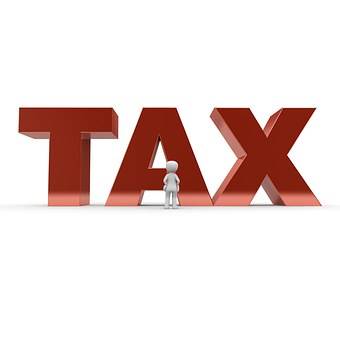 The Federal Reserve is supposed to be apolitical and to act to maintain price stability, high employment and modest economic growth. Under the Trump administration, that political independence is being placed under strain. In the latest of his tirades against Jerome Powell and his colleagues at the Federal Reserve, the President is calling for a 1% drop in interest rates and the (partial) resumption of quantitative easing, claiming that a strong Dollar is hurting not just the US but the global economies.
The Federal Reserve is supposed to be apolitical and to act to maintain price stability, high employment and modest economic growth. Under the Trump administration, that political independence is being placed under strain. In the latest of his tirades against Jerome Powell and his colleagues at the Federal Reserve, the President is calling for a 1% drop in interest rates and the (partial) resumption of quantitative easing, claiming that a strong Dollar is hurting not just the US but the global economies.
The US President claimed that the American economy is doing “tremendously well”, so a major economic stimulus would not be warranted by conventional logic. If rates did fall, the value of the US Dollar would dip, but this would mean that Americans had to pay more for imported goods as exporters adjust their prices to take account of the weaker Dollar. It would tend to make raw materials cheaper internationally (at first, at any rate) since they are priced in Dollars. However, most observers see Trump’s aggressive protectionism, in the shape of trade wars most notably with China, as the most pressing reason for a slowing of global demand.
Quantitative Easing was a desperate economic measure which central banks applied when there was no more wiggle room to stimulate economies by accommodative monetary policy. In essence, it involved creating trillions of Dollars via electronic credits and using the “new” money to buy assets with. The central banks held the assets, but the financial brokers were paid commission on their purchases on behalf of the banks and it was this injection of “real” cash which was intended to stimulate the economy by giving the financial sector more money to lend to businesses. However, apart from the technology, there is no difference between QE and literally printing money. Printing money works well for a while until confidence is lost in the currency being printed, triggering a major economic crash and hyperinflation. The central bankers’ fix to this risk is that the intention is to off-load the assets bought with the “new” money and cancel the credits generated, restoring the system to the status quo ante – except it has yet to happen almost a decade after the start of the Global Financial Crisis.
When central banks (or maybe that should be if) start the process of off-loading the trillions of Dollars worth of assets that they hold, it must be done slowly to avoid crashing asset prices by flooding the market with more assets than there are buyers for (which would lead to their price crashing).
In a remarkably insensitive comment, Trump claimed that: “"I don't think we're having a recession. We're doing tremendously well, our consumers are rich, I gave a tremendous tax cut, and they're loaded up with money”. Given that a very significant percentage of American families live at or below the poverty line and that many Americans cannot afford healthcare provision, this seems an extraordinarily insulting remark for a president to make as the US heads into a presidential election year.
